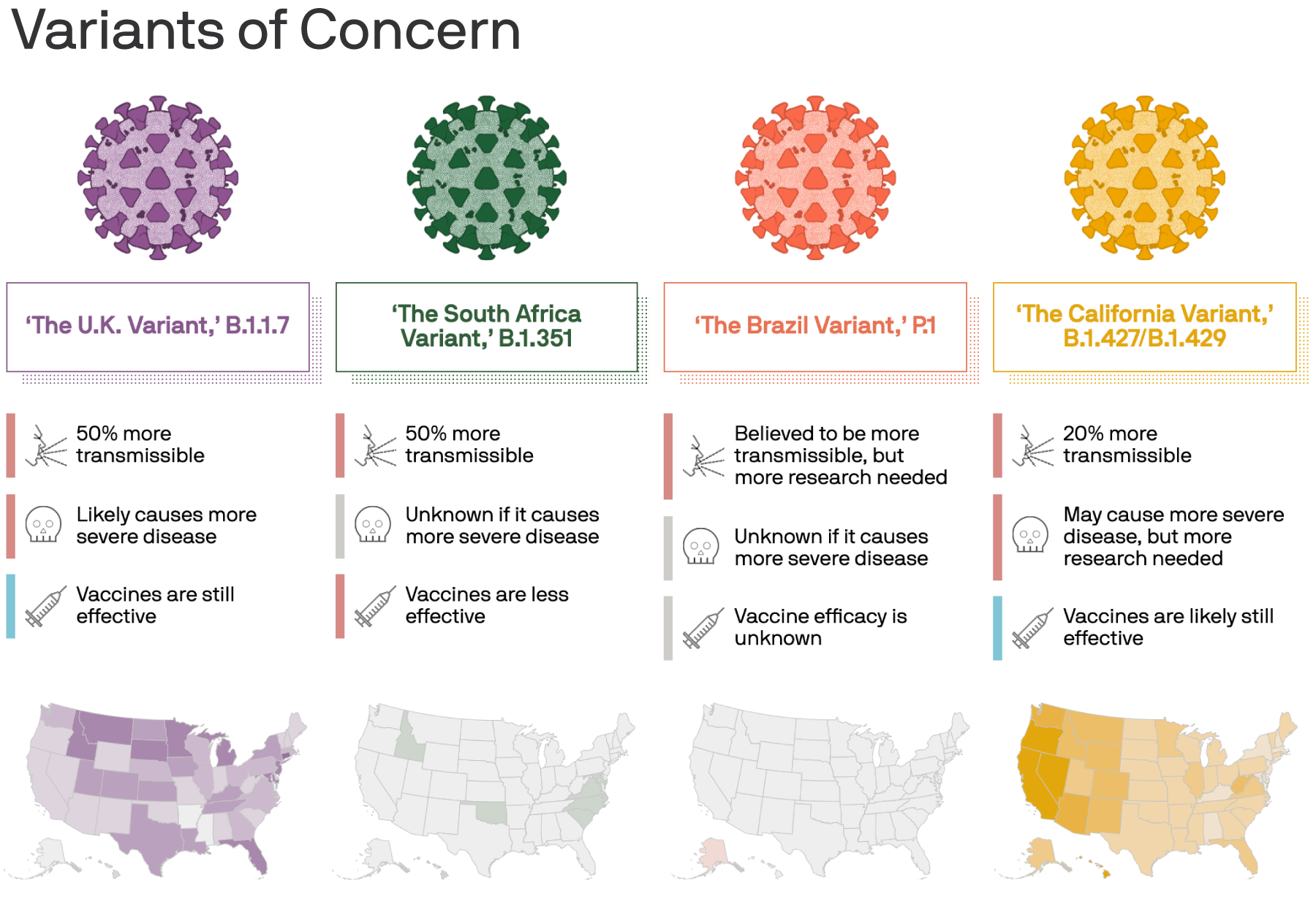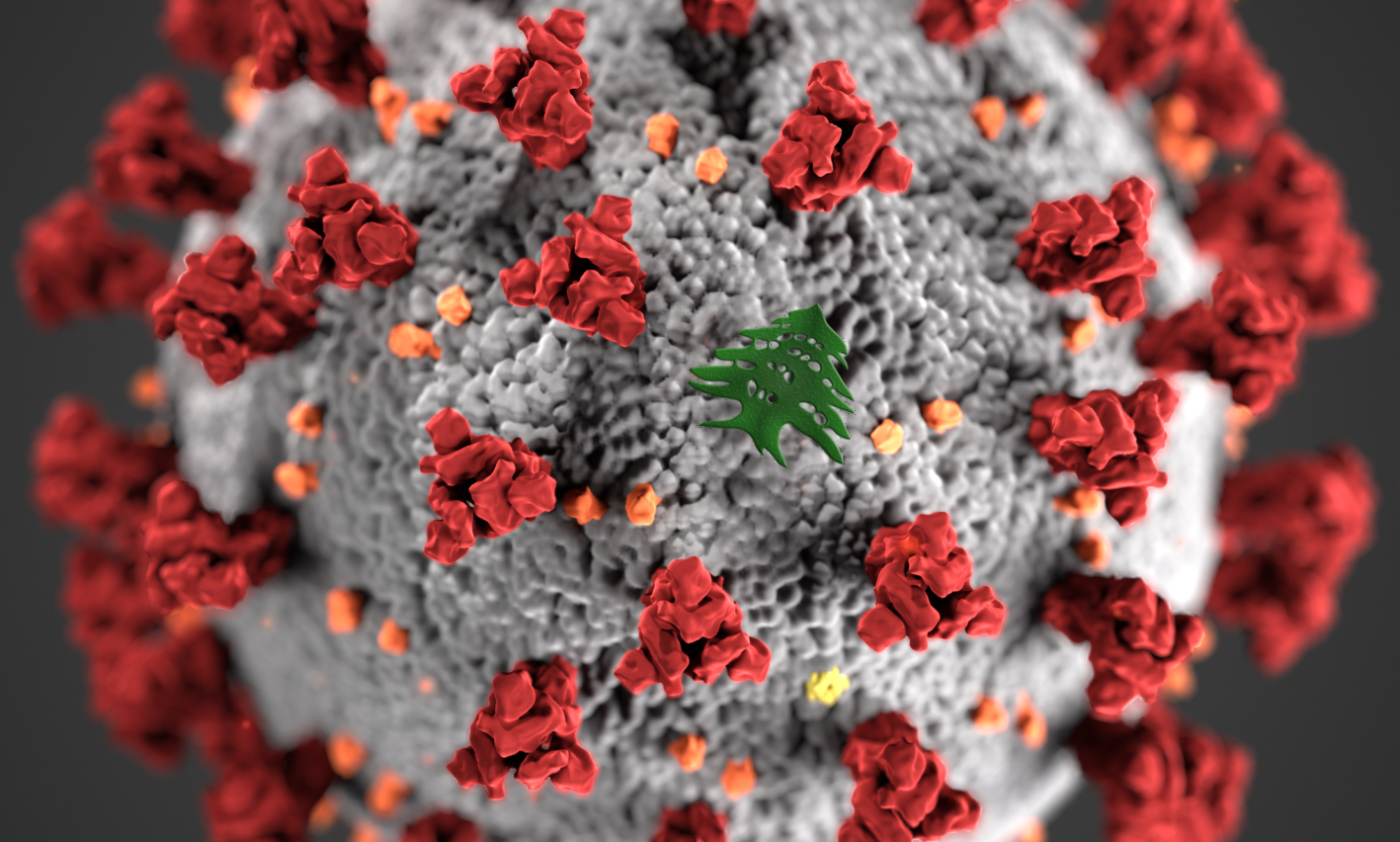Variants of COVID-19

Covid variant – COVID-19 variants are genetic mutations of the SARS-CoV-2 virus that have become prevalent in different parts of the world. These variants can have different characteristics, including increased transmissibility, severity, or resistance to vaccines. Here’s an overview of the key COVID-19 variants:
Lineage and Key Mutations
| Variant | Lineage | Key Mutations |
|---|---|---|
| Alpha | B.1.1.7 | N501Y, P681H |
| Beta | B.1.351 | K417N, E484K |
| Gamma | P.1 | N501Y, E484K |
| Delta | B.1.617.2 | L452R, T478K |
| Omicron | B.1.1.529 | N501Y, K417N, E484A |
Impact on Transmissibility, Severity, and Vaccine Efficacy
Variants can have varying degrees of impact on transmissibility, severity, and vaccine efficacy. Some variants, like Alpha and Delta, have been found to be more transmissible than the original strain of the virus, leading to faster spread. Others, like Beta and Gamma, have shown increased resistance to certain vaccines, reducing their effectiveness. The Omicron variant, in particular, has raised concerns due to its high transmissibility and ability to evade vaccine-induced immunity. Ongoing research is crucial to understanding the full impact of these variants and developing appropriate public health measures.
The Covid-19 variant has once again put the world on high alert. While the world grapples with this new threat, it’s interesting to note that the Metal Gear Solid Delta Snake Eater video game, released in 2004, featured a storyline involving a deadly virus that threatened to wipe out humanity.
The parallels between the game and the current pandemic are striking, and it’s a testament to the enduring power of storytelling that even a video game can offer insights into real-world events.
Tracking and Monitoring Variants

Tracking and monitoring the emergence and spread of COVID-19 variants is crucial for public health preparedness and response. This involves a combination of genomic sequencing, phylogenetic analysis, and surveillance systems.
Genomic Sequencing and Phylogenetic Analysis
Genomic sequencing involves determining the complete genetic code of the virus, which allows scientists to identify mutations and variants. Phylogenetic analysis compares the genetic sequences of different virus samples to construct evolutionary trees. This helps identify the origin, transmission patterns, and relationships between variants.
Surveillance and Data Sharing
Surveillance systems monitor the prevalence and spread of variants through testing and data collection. This includes collecting samples from infected individuals, sequencing their genomes, and sharing the data with public health authorities and researchers. Data sharing is essential for timely detection and tracking of variants across regions and countries.
Public Health Implications of Variants: Covid Variant

The emergence of COVID-19 variants has significant public health implications, posing challenges to vaccine development, healthcare systems, and society as a whole. Understanding these implications is crucial for developing effective mitigation strategies.
Vaccine Development and Distribution, Covid variant
Variants can evade the immune response induced by existing vaccines, reducing their effectiveness. This necessitates the development of updated vaccines that can provide broad protection against emerging variants. Additionally, equitable distribution of vaccines remains a challenge, especially in low-resource settings, exacerbating the spread of variants.
Healthcare Systems
Variants with increased transmissibility or virulence can overwhelm healthcare systems, leading to a surge in hospitalizations and deaths. The strain on resources can result in delayed care for non-COVID-19 patients and disrupt essential healthcare services.
Societal Impact
Variants can impact social and economic activities. Restrictions on movement and gatherings may be necessary to contain their spread, leading to disruptions in education, employment, and businesses. The psychological impact of the pandemic and the uncertainty surrounding variants can also contribute to mental health issues and social isolation.
Public Health Measures
To mitigate the risks posed by variants, public health measures are essential:
- Enhanced surveillance and monitoring: Tracking the spread and evolution of variants is crucial for timely detection and response.
- Updated vaccines: Developing and distributing updated vaccines that provide broad protection against variants is a priority.
- Targeted interventions: Implementing targeted interventions, such as isolation and contact tracing, can help contain the spread of variants in specific populations or regions.
- Strengthening healthcare systems: Investing in healthcare infrastructure, including surge capacity and training, is essential to prepare for potential surges in hospitalizations.
- Public health communication: Clear and accurate communication is vital to educate the public about variants, their risks, and preventive measures.
As the world grapples with the emergence of new COVID variants, it’s important to remember the lessons learned from past pandemics. The recent match between Colombia and the USA ( colombia vs usa ) serves as a reminder of the importance of international cooperation and solidarity in the face of global health crises.
By sharing knowledge and resources, we can work together to mitigate the impact of COVID-19 and other infectious diseases.
The emergence of new COVID variants has raised concerns globally. While Mexico and Brazil have experienced significant outbreaks, their responses have differed greatly. To understand these contrasting approaches, it is essential to examine the socio-economic factors and healthcare systems in both countries.
Mexico vs Brazil provides an in-depth analysis of these differences, highlighting the complexities of managing the pandemic in diverse contexts. As new variants continue to spread, it is crucial to learn from the experiences of countries like Mexico and Brazil to develop effective strategies for mitigating their impact.
As the world grapples with the emergence of new COVID variants, it is crucial to compare the experiences of different countries. For instance, the contrasting approaches adopted by Mexico and Brazil in tackling the pandemic ( mexico vs brazil ) offer valuable insights into the effectiveness of various strategies.
By studying these cases, we can gain a better understanding of how to navigate the ongoing challenges posed by the evolving virus.
The Covid-19 variant has caused widespread concern, but it’s important to remember that the fight against the pandemic is far from over. Just as the rivalry between Brazil and Mexico on the soccer field continues, so too must our efforts to combat the virus.
By staying vigilant and adhering to public health guidelines, we can emerge victorious from this global challenge.